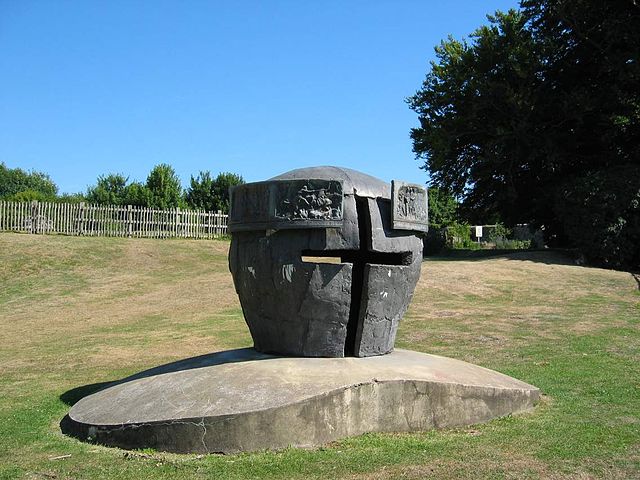The Battle of Lewes was one of two main battles of the conflict known as the Second Barons' War. It took place at Lewes in Sussex, on 14 May 1264. It marked the high point of the career of Simon de Montfort, 6th Earl of Leicester, and made him the "uncrowned King of England". Henry III's forces left the safety of Lewes Castle and St. Pancras Priory to engage the barons in battle and was initially successful, with his son Prince Edward routing part of the baronial army with a cavalry charge. However, Edward pursued his quarry off the battlefield and left Henry's men exposed. Henry was forced to launch an infantry attack up Offham Hill where he was defeated by the barons' men defending the summit. The royalists fled back to the castle and priory and the King was forced to sign the Mise of Lewes, ceding many of his powers to de Montfort.
Plan of the Battle of Lewes
Monument to the Battle of Lewes
The Second Barons' War (1264–1267) was a civil war in England between the forces of a number of barons led by Simon de Montfort against the royalist forces of King Henry III, led initially by the king himself and later by his son, the future King Edward I. The barons sought to force the king to rule with a council of barons, rather than through his favourites. The war also involved a series of massacres of Jews by de Montfort's supporters, including his sons Henry and Simon, in attacks aimed at seizing and destroying evidence of baronial debts. To bolster the initial success of his baronial regime, de Montfort sought to broaden the social foundations of parliament by extending the franchise to the commons for the first time. However, after a rule of just over a year, de Montfort was killed by forces loyal to the king at the Battle of Evesham.
Second Barons' War



